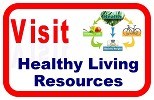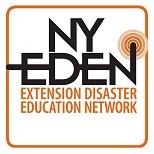CDC just released a new report entitled. This report describes an outbreak of 132 human Salmonella infections between August 2010 and September 2011 associated with exposure to small turtles (those with shell lengths < 4 inches).
Many of these infections occurred in young children, whose illness can be severe and cause hospitalization. Despite a three decade ban on the sale of small turtles, these infections continue to occur. CDC reported similar outbreaks in 2007 and 2008. Increasing enforcement of existing regulations, increasing penalties for illegal sales and emphasizing regulations can assist in decreasing infections acquired from these reptiles. Turtles are not appropriate pets in households with young children or other high risk individuals (pregnant women, older persons and the immune-compromised).
Did you know that reptiles and amphibians like turtles, lizards, and frogs can carry a harmful germ called Salmonella? If there are young children in your home, reptiles and amphibians might not be safe pets for your family.
Reptiles and amphibians are popular pets with many families. Turtles, frogs, iguanas, snakes, geckos, horned toads, salamanders, and chameleons are colorful, quiet, and often kept as pets. Reptiles and amphibians frequently carry a germ called Salmonella that can cause serious illness in people. Although many people think that Salmonella infections are caused only by contaminated food, these germs can also be caught by handling animals, including reptiles or amphibians. Salmonella infections can also result from having contact with reptile or amphibian environments, including the water from containers or aquariums where they live.
Salmonella can make people sick with diarrhea, vomiting, fever, and/or abdominal cramps. Sometimes, people can become so sick from a Salmonella infection that they have to go to the hospital. Young children, elderly persons, and those with weakened immune systems are more likely to develop severe illness from the infection. When severe illness occurs, Salmonella may spread from the intestines to the bloodstream and then to other body sites and can cause death unless the person is treated promptly with antibiotics.
Young children are at increased risk for Salmonella infection because their immune systems are still developing and because they are more likely than others to put their fingers or other items into their mouths. Therefore, families with children aged 5 years or younger in the home should avoid keeping reptiles or amphibians as pets.
How do people get Salmonella infections from reptiles and amphibians?
Reptiles and amphibians might have Salmonella germs on their bodies even when they appear healthy and clean. The germs can also get on cages, aquariums, terrariums, the water reptiles and amphibians live or swim in, and other containers that house them. Anything that reptiles and amphibians touch should be considered possibly contaminated with Salmonella. When you touch reptiles and amphibians, the germs can get on your hands or clothing. It is important to wash your hands immediately after touching animals, or anything in the area where they live and roam, including water from containers or aquariums, because the germs on your hands can easily spread to other people or things.
How do I reduce the risk of Salmonella infection from reptiles and amphibians?
- Wash your hands thoroughly with soap and warm water immediately after touching a reptile or amphibian, or anything in the area where they live and roam. Use hand sanitizer if soap and water are not readily available.
- Adults should always supervise hand washing for young children.
- Do not let children younger than 5 years of age handle or touch reptiles or amphibians, or anything in the area where they live and roam, including water from containers or aquariums.
- Keep reptiles and amphibians out of homes with children younger than 5 years old or people with weakened immune systems.
- Reptiles and amphibians should not be kept in child care centers, nursery schools, or other facilities with children younger than 5 years old.
- Do not touch your mouth after handling reptiles or amphibians and do not eat or drink around these animals.
- Do not let reptiles or amphibians roam freely throughout the house or in areas where food or drink is prepared, served, or stored, such as kitchens, pantries, or outdoor patios.
- Habitats and their contents should be carefully cleaned outside of the home. Use disposable gloves when cleaning and do not dispose of water in sinks used for food preparation or for obtaining drinking water.
- Do not bathe animals or their habitats in your kitchen sink. If bathtubs are used for these purposes, they should be thoroughly cleaned afterward. Use bleach to disinfect a tub or other place where reptile or amphibian habitats are cleaned.
- Wash any clothing the reptile or amphibian might have touched.
- Use soap or a disinfectant to thoroughly clean any surfaces that have been in contact with reptiles or amphibians.
What are the signs, symptoms, and types of treatment available for Salmonella infections?
You can learn more about the signs, symptoms, and treatment of Salmonella infection by visiting the CDC Salmonella web site. If you suspect you or your child has Salmonella infection, please contact your health care provider immediately.
Are there any restrictions about owning amphibians or reptiles?
Since 1975, it has been illegal in the United States to sell or distribute turtles with shells that measure less than 4 inches in length. This size was chosen because small children are more likely to treat smaller turtles as toys and put them in their mouths. This ban prohibiting the sale of small turtles likely remains the most effective public health action to prevent turtle-associated salmonellosis. Despite this ban, such turtles are still found in some pet stores, flea markets, with street vendors, or sold over the Internet. In addition, children still catch wild turtles and lizards and bring them home to keep as pets. Whether purchased or caught in a backyard, a reptile or amphibian can carry Salmonella and might not be the best choice of a pet for your family, especially if there are young children or persons with weakened immune systems in the household.
http://www.cdc.gov/healthypets/resources/amphibian-reptile-poster.pdf
CDC works 24/7 saving lives, protecting people from health threats, and saving money to have a more secure nation. A US federal agency, CDC helps make the healthy choice the easy choice by putting science and prevention into action. CDC works to help people live longer, healthier and more productive lives.





